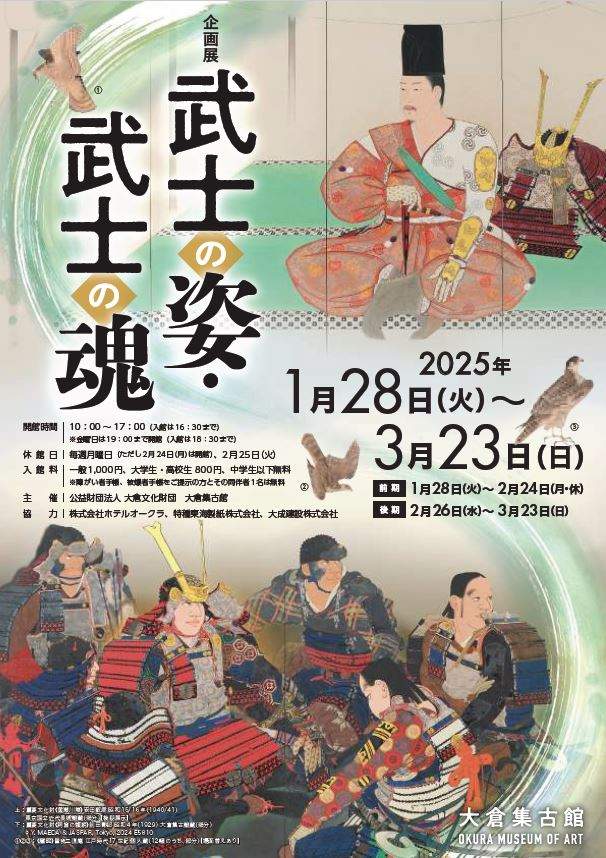Okura Shukokan Special Exhibition "The Appearance of the Samurai, the Soul of the Samurai"
In the late Heian period, when the samurai rose to the stage of history and later came to dominate the country, the figure of the samurai began to be depicted in paintings. Along with battle diagrams depicting the state of battle and samurai portraits depicting the appearance of samurai heads, motifs symbolizing military power and power have also come to be drawn. In the first chapter of this exhibition, you will enjoy the expressions of each era, including works depicting the figure of the samurai from the Edo period to the Showa period, as well as swords that have been cherished as the soul of the samurai with spiritual power, starting with Maeda Seina's "Yoritomo in the Cave," which stands out among the museum's collections. Chapter 2 examines works depicting falcons, which are symbols of military power and power, as well as prestige goods, and explore how falcon diagrams were depicted, solemnized, and used as a representation of the samurai. You will enjoy various expressions of martial arts centered on the museum's collection.
*First semester: January 28 (Tue) ~ February 24 (Mon, Holiday) *Second semester: February 26 (Wed) ~ March 23 (Sun)
| Phone | 03-5575-5711 |
|---|---|
| Hours | 10:00~17:00 (Admission until 16:30) Open until 19:00 every Friday, admission until 18:30 |
| Holiday | Every Monday (or Tuesday if it is a holiday) |
| Parking | without |
| Transportation | Tokyo Metro Namboku Line Roppongi 1-chome Station 5 minutes from the central ticket gate (towards Izumi Garden) Tokyo Metro Hibiya Line Kamiyacho Station 7 minutes from Exit 4B Tokyo Metro Hibiya Line Toranomon Hills Station 8 minutes from Exit A2a Tokyo Metro Ginza Line / Namboku Line Tameike Sanno Station 10 minutes from Exit 13 Tokyo Metro Ginza Line Toranomon Station 10 minutes from Exit 3 |
| Admission | Adults: 1,000 yen University and high school students: 800 yen *Please show your student ID. Junior high school students and younger: Free |
| URL | https://www.shukokan.org/ |




